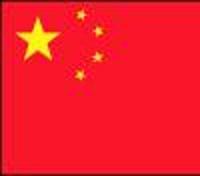Japan and China enter second day of talks on East China Sea gas dispute
China and Japan wrapped up two-day negotiations on disputed gas deposits in the East China Sea and agreed to meet again in an ongoing effort to resolve the territorial disagreement, the Chinese government said.

"The two sides exchanged in-depth views ... and agreed to hold a next round of consultation as soon as possible," the official Xinhua News Agency said.
It did not say when or where the talks would take place.
Japanese officials were hoping for a response from China to Tokyo 's proposal for joint development of the deposits. The Xinhua report did not give details on what China 's position was but said discussions were "pragmatic and constructive."
Kenichiro Sasae, head of the Japanese Foreign Ministry's Asia-Oceania Bureau, and his Chinese counterpart, Hu Zhengyao, met Tuesday morning after several hours of talks Monday, an official with the Japanese Embassy in Beijing said Tuesday. He spoke on condition of anonymity in keeping with embassy policy.
At the outset of the talks, Hu said he believed the two sides would resolve the issue.
"Our goal is to get over differences and seek cooperation," he said. "We need to solve the East China Sea issue through dialogue, which is even more important given the difficulties faced by China-Japan relations."
For both sides, much is at stake. China wants to expand its own resource base, while trade with its fast-growing neighbor is a key factor in Japan 's own economic revival.
It was the fourth time negotiators from both sides have met to talk about their overlapping claims to an area near Okinawa rich in oil and gas reserves. The last gas field talks were held in January in Beijing . The meetings have so far failed to produce any settlement.
While energy-hungry China and Japan are linked by billions of dollars of trade, aid and investment, relations have been strained in the past year because of clashes over their wartime history and China 's growing military power.
China 's foreign minister, Li Zhaoxing, on Tuesday repeated Beijing 's objections over Japanese Prime Minister Junichiro Koizumi's visits to a war shrine that honors Japanese war dead, including convicted war criminals.
Li described the visits as inexplicably "stupid," and he demanded that Koizumi and other leaders not repeat them.
"Japanese leaders must demonstrate courage and sincerity and correct their mistakes," Li said at a news conference held on the sidelines of China 's annual parliamentary session.
China only conducts offshore oil and gas development in areas that are not disputed territories, Li contended.
Under the U.N. Convention on the Law of the Sea, coastal nations can claim an economic zone extending 370 kilometers (230 miles) from their shores.
Both Japan and China signed the treaty, but their claims overlap in the disputed area and the United Nations has until May 2009 to rule on the matter.
China has already extracted gas from one field, triggering protests from Japan , which fears the reserves might run dry, reports the AP.
D.M.
Subscribe to Pravda.Ru Telegram channel, Facebook, RSS!





